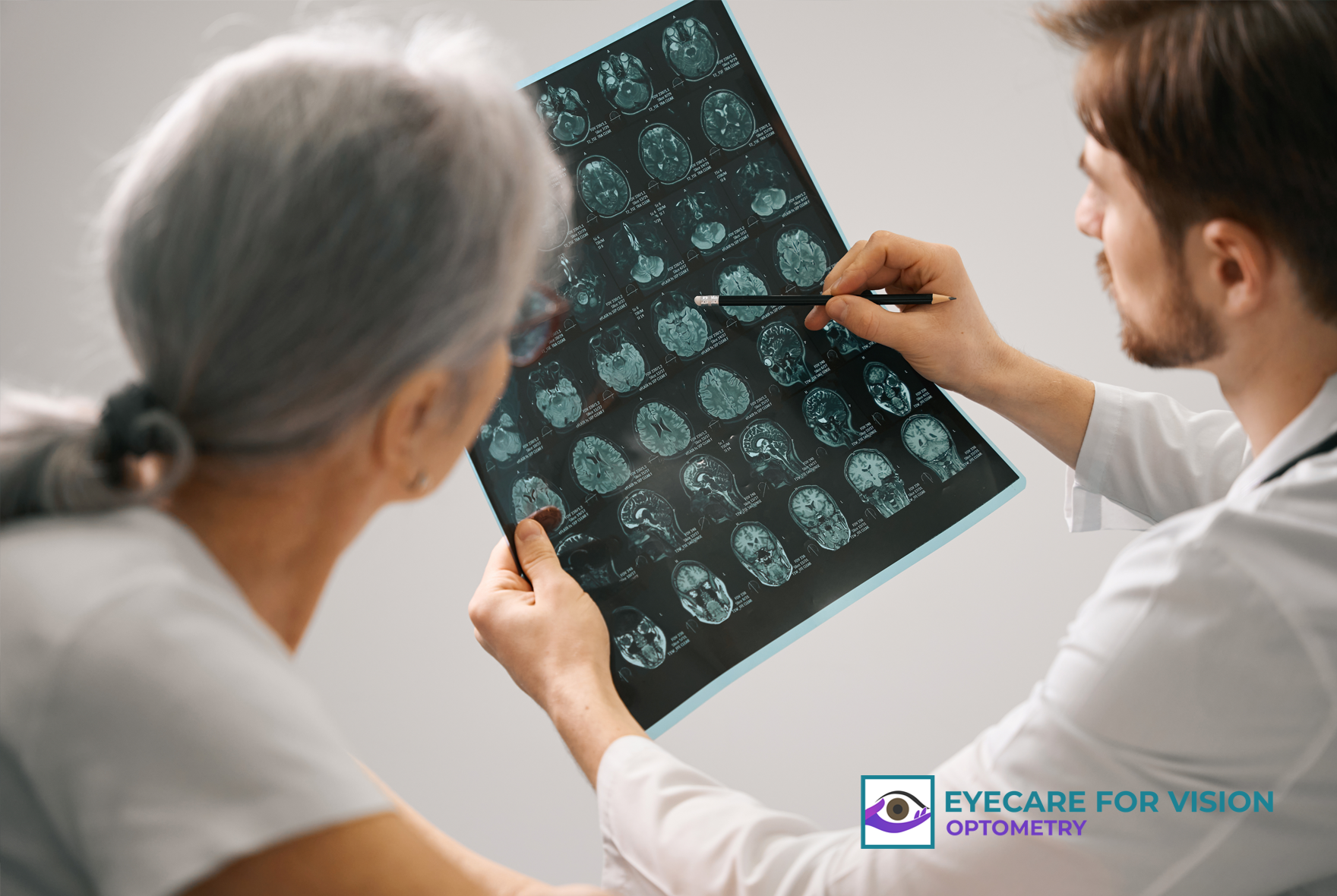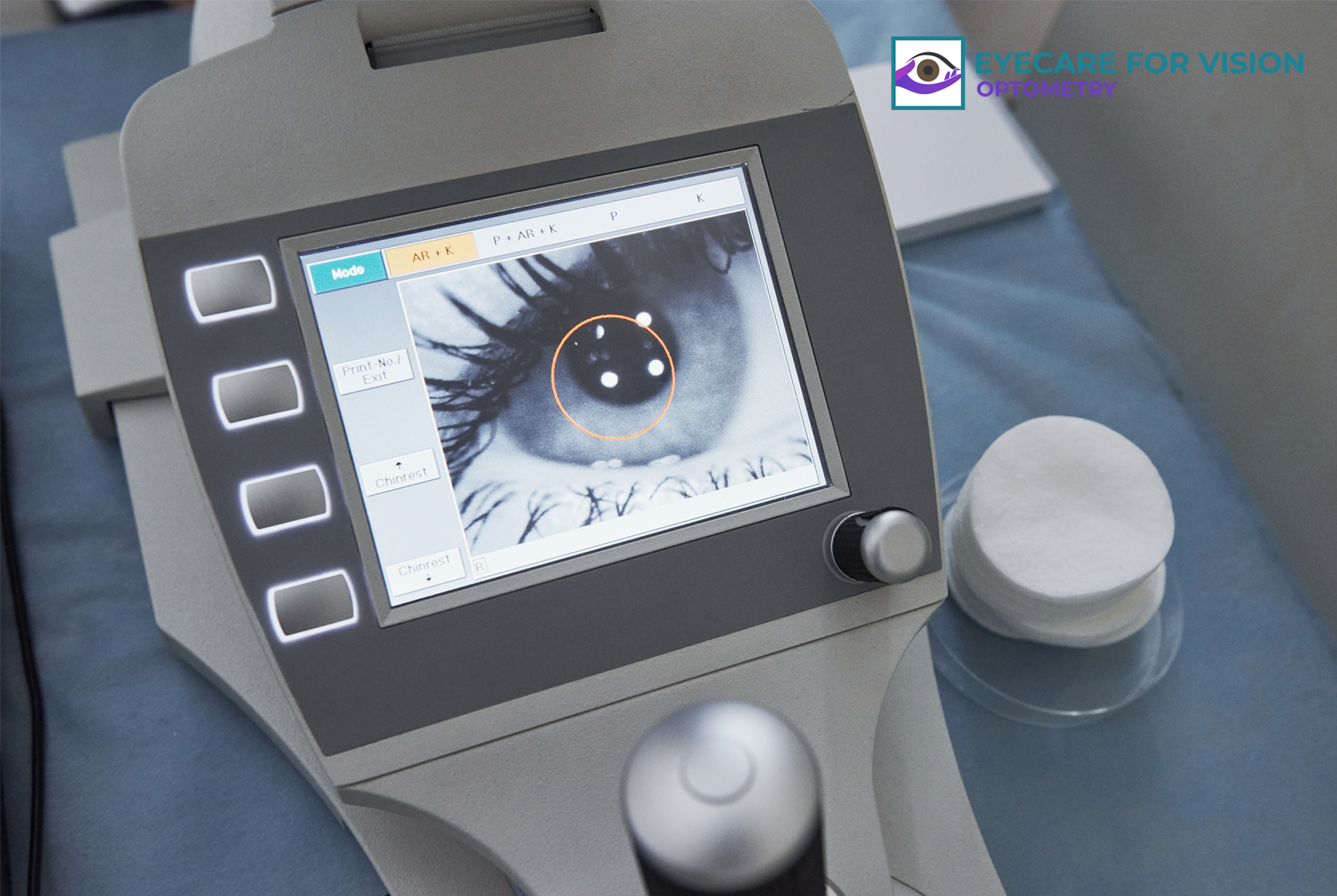Can Eye Exams Help Detect Stroke Risk or Vascular Problems?
TLDR
Eye exams can reveal signs of stroke risk and vascular problems.
Conditions like hypertension, retinal artery occlusion, and diabetic retinopathy may be detected during an eye exam.
Comprehensive Eye Exams in Rancho Bernardo can aid in early detection and prevention.
Treatments vary from lifestyle changes to medical interventions.
Consult your healthcare provider if you notice vision changes or other concerning symptoms.
How Can Seniors Protect Their Eyes from Falls and Accidents?
TLDR
Seniors face increased risks of eye-related falls and accidents.
Regular Comprehensive Eye Exams in Rancho Bernardo are essential.
Implement home safety measures to minimize fall risks.
Stay informed about the latest treatments for vision-related conditions.
Schedule visits with an affordable optometrist near Rancho Bernardo for personalized care.
Are There Ways to Prevent Age-Related Vision Loss?
TLDR
Age-related vision loss can result from conditions such as cataracts, glaucoma, macular degeneration, and diabetic retinopathy.
Regular Comprehensive Eye Exams help detect changes early.
Maintain a healthy diet rich in nutrients like lutein, zeaxanthin, and vitamins C and E.
Avoid smoking and protect your eyes from UV exposure with quality sunglasses.
Manage diabetes and other chronic conditions with professional care.
Address issues like dry eyes or myopia early to prevent discomfort and further complications.
False eyelashes can interfere with proper eyelid evaluation and harbor mites such as Demodex.
Early detection and proactive care are key to preserving lifelong vision.
What’s the Difference Between Normal Aging of the Eye and Disease?
TLDR
Normal Aging: Includes presbyopia, reduced tear production, and slight color vision changes.
Eye Diseases: Glaucoma, cataracts, and age-related macular degeneration (AMD) are common.
Symptoms: Blurry vision, eye pain, and vision loss could signal disease.
Treatment: Varies from lifestyle changes to surgery; consult a professional.
Prevention: Healthy diet, UV protection, and regular eye exams help maintain eye health.
Consultation: See a doctor if you notice changes in vision or discomfort.
How Does Smoking or Vaping Impact Eye Health?
TLDR
Smoking and vaping can significantly harm eye health.
Common eye conditions linked to smoking include cataracts and age-related macular degeneration (AMD).
Vaping exposes eyes to harmful chemicals, potentially increasing the risk of dry eye syndrome and other conditions.
Prevention includes quitting smoking and regular eye exams.
Consult your healthcare provider for personalized advice.
Is it True That Regular Exercise Helps Protect Your Eyes?
TLDR
Exercise Benefits: Enhances blood flow, reduces inflammation, and lowers risk of eye diseases.
Eye Health Conditions: Includes glaucoma, diabetic retinopathy, and age-related macular degeneration.
Treatment Options: Emphasize regular check-ups and lifestyle adjustments.
Prevention Tips: Balanced diet, regular exercise, and protective eyewear.
When to See a Doctor: Sudden vision changes or persistent eye discomfort.
Consultation: Regular comprehensive eye exams are crucial.
Can Eye Exams Detect Early Signs of Alzheimer’s Disease?
TLDR
Eye exams might detect Alzheimer's early by observing retinal changes.
Symptoms of Alzheimer's include memory loss and confusion.
Treatment focuses on managing symptoms rather than cure.
Eye health can hint at brain health; consult your healthcare provider.
Regular eye exams are important for overall health.
Does Wearing Sunglasses Actually Protect My Eyes from Disease?
TLDR
Sunglasses protect against harmful UV rays
Reduced risk of cataracts and macular degeneration
Prevention of skin cancer around the eyes
Protection from debris and dry eye syndrome
Essential for comprehensive eye health
How Do I Know If I Need Reading Glasses or Progressive Lenses?
TLDR
• Reading Glasses: Ideal for close-up tasks like reading; single vision lenses.
• Progressive Lenses: Offer multiple prescriptions in one lens; suitable for those needing vision correction at varying distances.
• Symptoms: Difficulty reading fine print, eye strain.
• Treatment Options: Include glasses, contact lenses, and lifestyle modifications.
• Consultation: Seek a comprehensive eye exam in Rancho Bernardo to determine the best option.
Can Stress or Anxiety Affect My Vision?
TLDR
• Stress and anxiety can affect vision through eye strain, blurred vision, or headaches.
• Symptoms include dry eyes, sensitivity to light, and twitching.
• Treatment includes stress management, regular eye exams, and lifestyle changes.
• Recent studies show a link between stress and eye health.
• Consult your healthcare provider for personalized advice.
What Causes Floaters and Flashes in Vision, and When Are They Serious?
TLDR
Floaters are small shapes seen in vision due to changes in the eye's vitreous.
Flashes occur when the retina is stimulated by pulling or rubbing.
Both can be benign but sometimes signal serious conditions like retinal detachment.
Comprehensive eye exams can help diagnose underlying issues.
Seek immediate medical attention if you experience a sudden increase in floaters or flashes.
At What Age Should My Child Have Their First Comprehensive Eye Exam?
TLDR
First Eye Exam: Recommended at 6 months old, then at age 3, before starting school, and annually thereafter.
Importance: Early detection of issues like amblyopia, strabismus, and refractive errors.
Symptoms to Watch: Squinting, eye rubbing, sitting close to screens, poor hand-eye coordination.
Treatment Options: Glasses, vision therapy, and sometimes surgery.
Prevention: Regular eye exams, protective eyewear, limited screen time.
Consultation: Always consult your healthcare provider for personalized advice.
How Does High Blood Pressure Affect My Eyes?
TLDR
High blood pressure can lead to serious eye conditions such as hypertensive retinopathy and glaucoma.
Symptoms may include blurred vision and eye strain.
Treatment involves managing blood pressure, regular eye exams, and specific eye condition treatments.
Prevention includes a healthy lifestyle and regular medical check-ups.
Consult your healthcare provider for personalized advice.
Is My Screen Time Affecting My Vision, and What Can I Do About It?
TLDR
Prolonged screen time can cause digital eye strain.
Symptoms include dry eyes, blurred vision, and headaches.
Implement the 20-20-20 rule: every 20 minutes, look at something 20 feet away for 20 seconds.
Regular comprehensive eye exams are crucial.
Consult your healthcare provider for personalized advice.
How Often Should I Get a Comprehensive Eye Exam?
TLDR
Adults aged 18-60: Eye exams every 2 years; annually if at risk.
Children & Teens: First exam at 6 months, then 3 years, before school, and every 1-2 years.
Seniors 61+: Annual exams recommended.
Risk Factors: Diabetes, family history, medications, systemic diseases.
Symptoms Warning: Blurry vision, headaches, dry eyes.
Prevention: Healthy diet, UV protection, screen breaks.
Consult: For sudden vision changes or eye pain.
What Can I Expect During a Comprehensive Eye Exam?
TLDR
A comprehensive eye exam includes tests for visual acuity, eye muscle function, and eye health.
Conditions like myopia, diabetic retinopathy, and dry eye syndrome can be detected.
Treatment options vary, with pros and cons for each condition.
Recent studies show early detection improves outcomes for eye diseases.
Consult your healthcare provider if you experience persistent eye issues.
Schedule regular exams for preventive care and early detection.
















